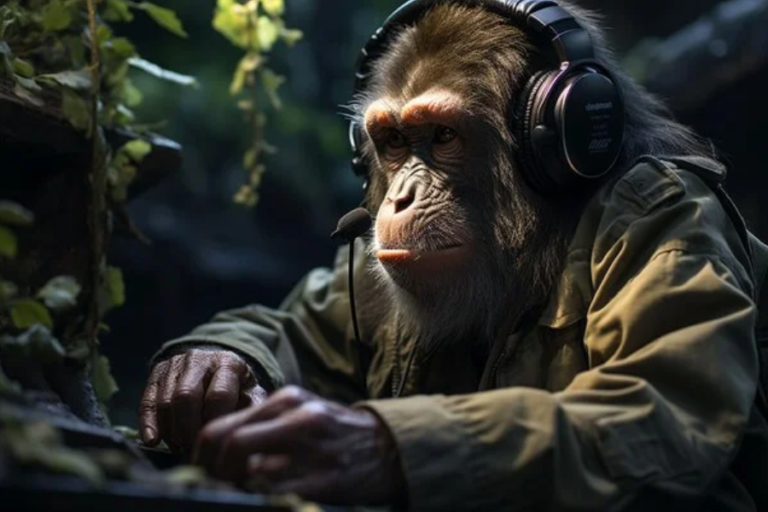Превоодач Explained: Benefits and Features of Modern Translation Tools
The Role and Importance of a Translator: A Comprehensive Overview
A translator, or “превоодач,” plays a vital role in bridging communication gaps between different languages. Whether you need to understand spoken Spanish while speaking English or read a French book in English, a translator ensures that language barriers do not hinder understanding. They are essential in facilitating effective communication by converting words and texts from one language to another, making information and culture accessible to a broader audience.
Translators are not limited to spoken conversations; they also handle written materials, such as books, articles, and official documents. For example, if a novel is originally written in French, a translator can convert it into English, allowing more people to enjoy and learn from it. This ability to translate and convey the original message, including its tone and context, is crucial. Translators must interpret not just words but also the underlying emotions and cultural nuances, ensuring that jokes, idioms, and other expressions are accurately represented in the target language.
The impact of translators is felt across various sectors. In educational settings, they help students from different linguistic backgrounds access learning materials and participate fully in class. In healthcare, they ensure that medical information is accurately communicated to patients who may not speak the same language as their healthcare providers. In business, translators facilitate clear communication between companies and international clients, reducing the risk of misunderstandings and fostering successful collaborations.
Enhancing Communication Through Translation
Translators play a key role in making communication smoother by removing language barriers. They convert spoken or written content from one language to another, allowing conversations and interactions to proceed seamlessly. This is particularly useful in travel, where a translator can assist with navigating new environments, ordering food, or engaging with locals, ensuring a more enjoyable and comfortable experience.
In the business world, translators are indispensable for companies that operate internationally. They ensure that all aspects of communication—such as contracts, emails, and meetings—are clearly understood across different languages. This clarity helps prevent errors, miscommunications, and facilitates successful business transactions and partnerships.
Education also benefits significantly from translation services. In multilingual classrooms, translators help by converting educational materials and instructions, ensuring that all students have equal access to learning resources and can participate in class activities without language being a barrier.
Overall, translators are crucial for effective communication, enabling people from diverse linguistic backgrounds to connect, collaborate, and share ideas.
The Essential Skills of a Translator
To excel as a translator, several skills are essential. Proficiency in both the source and target languages is fundamental. This includes a deep understanding of grammar, vocabulary, idioms, and cultural context. Accurate translation requires more than just substituting words; it involves capturing the nuances and emotions of the original message.
Attention to detail is another critical skill. Translators must be meticulous to avoid errors that could alter the meaning of the text. Whether working with written documents or spoken words, precision is crucial for maintaining the integrity of the translation.
Strong communication skills are also important. Translators need to clarify ambiguities and ask questions to ensure they fully understand the context. They should be able to explain cultural nuances and differences to provide a translation that is both accurate and culturally appropriate.
Cultural awareness is key for translating idiomatic expressions and culturally specific content. A translator’s knowledge of cultural contexts helps ensure that translations are respectful and relevant to the target audience.
Research skills are also necessary, as translators often encounter unfamiliar terms or concepts. The ability to quickly find and understand accurate information is crucial for producing high-quality translations.
The Intersection of Translation and Technology
Technology has significantly enhanced the work of translators, making their tasks more efficient and accurate. Translation software and tools provide quick conversions between languages, with access to extensive dictionaries and databases that aid in accurate translation.
Machine translation systems, such as Google Translate, offer rapid translations and can handle large volumes of text. While they provide a useful starting point, they often require human oversight to address nuances and context-specific details.
Computer-assisted translation (CAT) tools support human translators by managing translation projects and ensuring consistency across documents. These tools store previously translated content, making it easier to maintain uniformity and efficiency, especially in large-scale projects.
Additionally, technology facilitates collaboration among translators. Online platforms and cloud-based services enable multiple translators to work together, share resources, and provide feedback in real-time, improving the overall quality and timeliness of translations.
Becoming a Skilled Translator
To become a successful translator, mastering both source and target languages is crucial. This involves comprehensive study and practice to understand language intricacies, grammar, idioms, and cultural contexts.
Formal education or training in translation or linguistics is beneficial. Degrees or certifications in these fields provide essential techniques and professional insights, often leading to specialization in areas like legal or medical translation.
Practical experience is also vital. Starting with small projects, volunteering, and seeking feedback helps build a portfolio and improve skills. Organizational skills and attention to detail are important for managing multiple projects and maintaining accuracy.
Staying current with language trends and continuing education is essential. Languages evolve, and ongoing learning helps keep translations relevant and high-quality. Engaging with language communities and attending workshops can further enhance a translator’s expertise.
Types of Translators: From Human Expertise to Technological Assistance
Translators come in various forms, each with unique roles. Human translators are professionals who use their deep linguistic and cultural knowledge to provide accurate and nuanced translations. Their expertise is crucial for handling complex texts and ensuring cultural sensitivity.
Machine translation systems, such as Google Translate, offer rapid and broad translations. While they are efficient, they often lack the nuance and context that human translators provide and may require refinement for accuracy.
Computer-assisted translation (CAT) tools support human translators by managing translation projects and ensuring consistency. These tools are valuable for maintaining quality across large documents and multiple projects.
Hybrid systems combine machine translation with human review. This approach leverages the speed of technology while ensuring the accuracy and cultural relevance provided by human translators, offering a balanced solution for various translation needs.
Each type of translator has its strengths and limitations, and understanding these helps in selecting the right approach for different translation requirements.
The Role of Translators in Our Daily Lives
Translators, or превоодач, are integral to various facets of everyday life, ensuring smooth communication across different languages. They are particularly prevalent in the travel industry, where they assist travelers in navigating foreign environments, understanding local cuisine, and interacting with residents. Whether through in-person assistance at tourist centers or via translation apps, their role is crucial in making travel more enjoyable and less stressful.
In the business world, language experts are indispensable. Companies that engage with global clients and partners depend on translators to facilitate meetings, draft contracts, and prepare marketing materials. This ensures that all parties involved have a clear understanding of each other’s needs and intentions, which is essential for smooth business operations and avoiding misunderstandings that could impact relationships.
Educational institutions also benefit from the expertise of translators. Schools and universities employ them to help students who speak different languages by translating educational resources, aiding classroom communication, and supporting exam processes. This helps create an equitable learning environment, allowing students to succeed regardless of their linguistic background.
In the legal and medical fields, translators play a critical role. They handle the translation of legal documents, court proceedings, and medical records, ensuring accurate communication in these crucial areas. Their work is vital for clear legal outcomes and effective healthcare delivery.
Overall, translators are a vital part of many daily interactions, bridging language gaps and enabling effective communication across various sectors. Their presence ensures that people from different linguistic backgrounds can connect and collaborate effectively.
Challenges Faced by Translators
Translators face numerous challenges that make their job both demanding and rewarding. One of the primary difficulties is dealing with language nuances and idiomatic expressions. Languages often contain idioms, slang, and cultural references that don’t translate directly. Translators must navigate these subtleties to convey the intended meaning accurately without causing confusion. This requires a deep understanding of both languages and their cultural contexts.
Another significant challenge is managing workload and tight deadlines. Translators frequently juggle multiple projects, each with unique requirements and deadlines. Balancing these demands requires exceptional time management skills to ensure timely and high-quality translations.
Consistency is crucial in large-scale projects. Translators must maintain uniformity in terminology and style across extensive documents or ongoing projects. They use various tools and strategies to achieve this, as inconsistencies can affect the document’s readability and professionalism.
Cultural sensitivity is also a major concern. Translators must be mindful of cultural differences to avoid translations that could be perceived as offensive or inappropriate. Understanding the cultural context of both the source and target languages is essential for ensuring that translations are respectful and suitable for the intended audience.
Finally, staying current with language evolution and technological advancements is a continuous challenge. As languages change and new terms emerge, translators need to keep up-to-date. Additionally, mastering new translation tools and software requires ongoing learning and adaptation.
Translators: Connecting Cultures
Translators are crucial in bridging cultural divides by facilitating communication between speakers of different languages. In our increasingly globalized world, where cross-cultural interactions are common, their role is more important than ever. By translating not just words but also cultural subtleties, they help foster mutual understanding and respect.
In international business, translators help companies navigate cultural differences by translating marketing materials, contracts, and communications. This ensures that messages are clear and appropriate for diverse audiences, aiding in successful global expansion and strong international partnerships.
In personal contexts, translators also play a key role. They assist in various scenarios where people from different backgrounds need to communicate, such as travel, legal matters, or medical consultations. By translating conversations and documents, they help individuals overcome language barriers and access essential services, ensuring that everyone is understood and respected.
Cultural sensitivity is central to a translator’s role. They must navigate cultural norms, values, and sensitivities in both the source and target languages to avoid missteps. For example, understanding how to handle cultural references and humor is essential for accurate and respectful translations.
Overall, translators are vital in bridging cultural and linguistic gaps. Their work not only enables effective communication but also supports global understanding and cooperation. As the world becomes increasingly interconnected, their role in promoting mutual respect and cultural appreciation will remain essential.
Summary
A превоодач is a vital professional who facilitates communication across different languages, ensuring that people can interact effectively despite language barriers. Translators are indispensable in various settings, including travel, business, education, legal, and medical fields. They work to bridge communication gaps by translating both spoken and written content, preserving the meaning and tone of the original message while adapting it for the target audience.
In travel, translators help visitors navigate foreign environments and interact with locals. In business, they ensure clear communication and avoid misunderstandings between international clients and partners. In education, they support non-native students by translating educational materials and facilitating classroom instruction. In legal and medical fields, their role is crucial for accurate communication in legal documents and patient care.
Translators face challenges such as managing idiomatic expressions, meeting tight deadlines, maintaining consistency, and adapting to cultural nuances. Technology enhances their work by providing tools for efficiency and accuracy, but human expertise remains essential for nuanced translations.
The future of translation is likely to see advancements in AI and machine learning, offering more efficient translation solutions while maintaining the crucial role of human translators in interpreting context and cultural subtleties.
Discover current events and trending stories from Dubai, only at DubaiTimes.co.uk.






